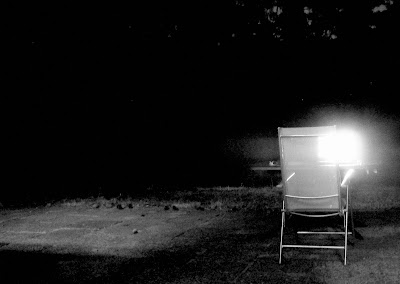11 June 2008

Philosophy is quintessentially a journey. When we travel, when we make a true journey, we absorb the environment and experience a different world, we fuse with alterity, with the newness and the many differences that enstrange us from our past. Travelling is a metaphor for reading philosophy, because I enter into a new world entirely and experience everything differently. And I becomes different because of it. Are we not exactly that what we experience? The more I am becoming a philosopher, the less I have the urge to travel. A philosophy book is enough. Yet at the same time, I never truly leave myself when doing philosophy, I always remain within myself, I am always the one appropiating the new world, making the different thoughts my own, whatever that may mean...
{Fragment} My experience of a Nietzschean perspective:
Culture is permeated with oppositions, things of different nature clash with each other. There is a gap between oppositions, a nothingness. Humans are caught within this nothingness, in between all oppositions. For example, Good and Evil: are thought to be two wholly different things, an act is either Good or Evil. Or, Truth and Falsehood: there are things that change, they only appear as they they are and there is truth that is always the same, beyond appearance. Nietzsche undoes this opposition, brings the opposing elements into contact, revealing them to be of the same kind. They become mere points on the same scale, different values of the same variable. So, Good is what weak people use to restrain the strong, Evil becomes natural striving; good becomes evil, evil becomes good: they have become similar. And similarly, Truth is used conserve the old, it is dogmatic and denies real life while Falsehood is the origin of creativity and everything new; truth become false, false becomes true to life and growth. We should strive but we should not strive for that which denies life, we should strive to go beyond ourselves without making the 'beyond' other-wordly. Life does not know oppositions.
{Fragment} My experience of a Hegelian perspective:
The subject becomes only properly a self-conscious person when it is opposed by something hidden, something unlike one-self, a non-I, an object. The self receives its first delineation, its first definition from its difference to an other, the other opens up the possibility for the subject being reflected back unto itself and thereby gains self-consciousness. However, often the object will actually also be a human being, resulting in a clash of wills, of desires, of the need for recognition.
These are just fragments, two examples of the experiences I wander through. I see these things everywhere around me. But they are not at all Nietzsche or Hegel, they are my experience of them. I have appropiated them, made their thoughts my own while bringing my own thoughts to them. They are not fully interpretations, they are also inspirations. The fragments are hybrids. But in the end, I mainly see myself in the experiences, my personal problems and my questions of life. Thus I am doing myself, I am reading myself. I get so sick of myself. The "I" is lurking behind every experience. I cannot get out of myself. Everything other becomes me. For a short moment the world becomes Nietzschean or Hegelian, it is my real relieve, my drug; but soon enough I recognize my doings in the adaptation, my own self that directs the misinterpretation. But I do not want to be the God of my experience. I do not want it at all. I do not want to be omnipresent. I do not want to be locked in myself. I do not want to have to distance myself from things, in order not to destroy them. It is lonely. It is perverse. It is boring. And the more I think, the more I turn everything into myself, the more I overcome my oppositions, the more I grow, the lonelier I become.
Labels: Thoughts


